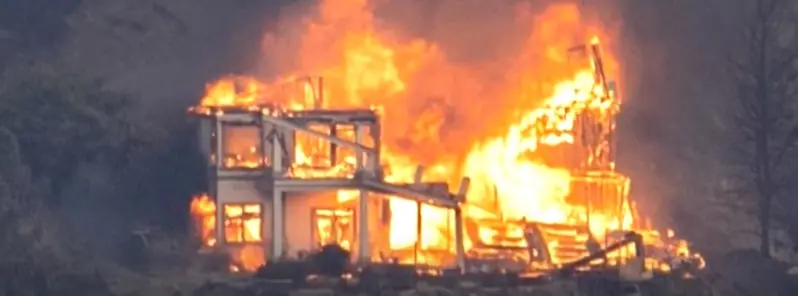Canadian wildfires prompt evacuation of 20 000 as flames approach Yellowknife

Multiple wildfires in Canada’s northern territories have forced thousands to evacuate their homes, especially in Yellowknife. As the flames approached, the 20 000 residents of the city were instructed to evacuate by Friday, August 18, 2023.
In a tense situation, with Yellowknife’s only highway congested, residents traveled hundreds of kilometers for safety or queued for emergency flights. By early Friday, the wildfire was merely 15 km (9 miles) away from the northern edge of the town. Emergency officials raised concerns that north-west winds and limited rain could escalate the situation. However, cooler temperatures did bring a brief respite on Friday, helping reduce the fire activity and permitting air tankers to drop retardants.
Mike Westwick, the fire information officer of Yellowknife, stated the significance of the next few days in managing the wildfire. The city is not alone in facing this crisis. A state of emergency was proclaimed in Kelowna on Friday, a city roughly 400 km (250 miles) from Vancouver. Wildfires identified on Tuesday surged over Lake Okanagan, sparking fires in the town with a population of 150 000.
Prime Minister Justin Trudeau expressed support, emphasizing the government’s commitment to safeguard Canadians during this challenging wildfire season. Canada is enduring its worst wildfire season on record. The Canadian Interagency Forest Fire Centre reported over 5 700 fires this year, consuming more than 137 000 km (85 125 miles) of land.
In what marked the most significant evacuation this year, Ken McMullen, the president of the Canadian Association of Fire Chiefs, stated that Yellowknife’s evacuation surpassed all others. Ten aircraft transported 1 500 passengers from Yellowknife on Thursday, with hopes of an additional 22 flights by Friday.
Despite the challenging conditions, Yellowknife’s fire didn’t progress on Friday and remained 15 km (9 miles) north-west of the city. Cooler weather resulted in decreased fire activity and facilitated air tanker operations.
While some residents faced the trauma of evacuating, others were already dealing with the aftermath. Alice Liske evacuated with her six children earlier due to poor air quality and expressed concerns about the city’s condition upon their return.
Lisa Mundy, who evacuated the nearby Hay River, relayed a harrowing account of her vehicle nearly melting as they drove amidst the embers. Distressingly, her child voiced fears about their survival. In addition to Yellowknife, around 6 800 people from eight other communities had to evacuate. This includes the community of Enterprise, which faced considerable damage.
The evacuation directive issued for Yellowknife also encompassed the neighboring First Nations communities of Ndilo and Dettah.
References:
1 Thousands evacuate as fire nears Canadian cities of Yellowknife and Kelowna – AP – August 18/19, 2023
Featured image credit: Shannon Smalley


What a bullsh*t. Yellowknife is never in danger of burning, and when they ordered evacuation, the fires were at least 100 kliks away from the city. The city is surrounded by stone outcrops, in would never burn. There could be smoke problem, but what they show in the video is better than what we had even in Saskatoon in 2015, and nobody was evacuating Saskatoon then. They just trying to make people worry. Stealing taxpayer’s dollars quietly, probably, under pretense of “fighting with wildfires”. They probably started those fires, wouldn’t be surprised. Firemen from the North say lots of fires were started by kids in small communities because they wanted to be evacuated to the city , and live in hotels for free.